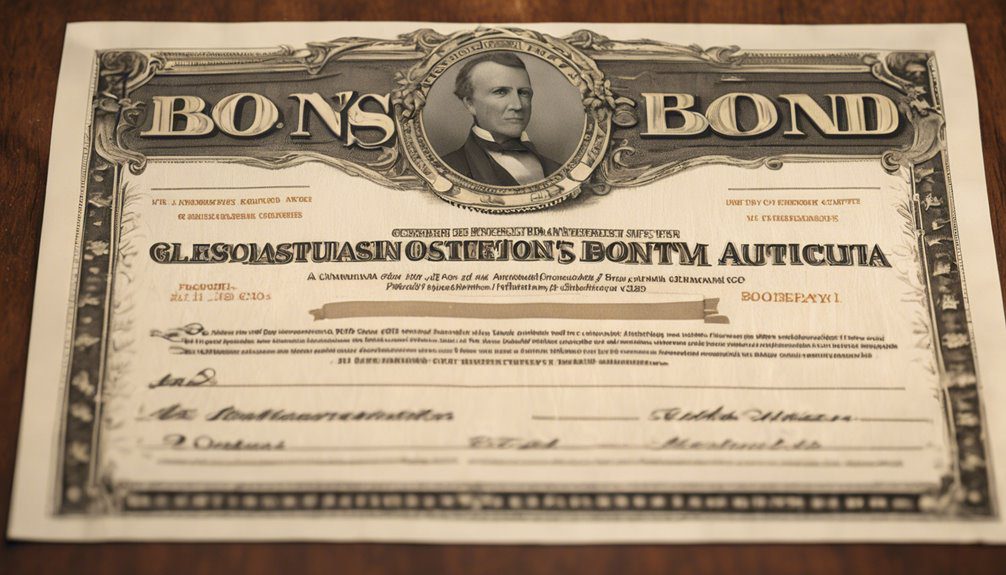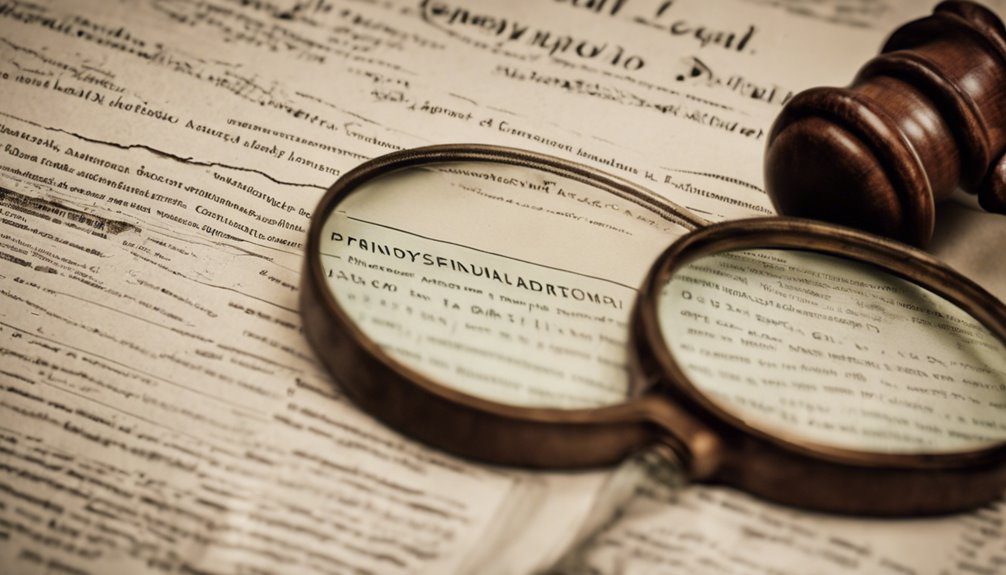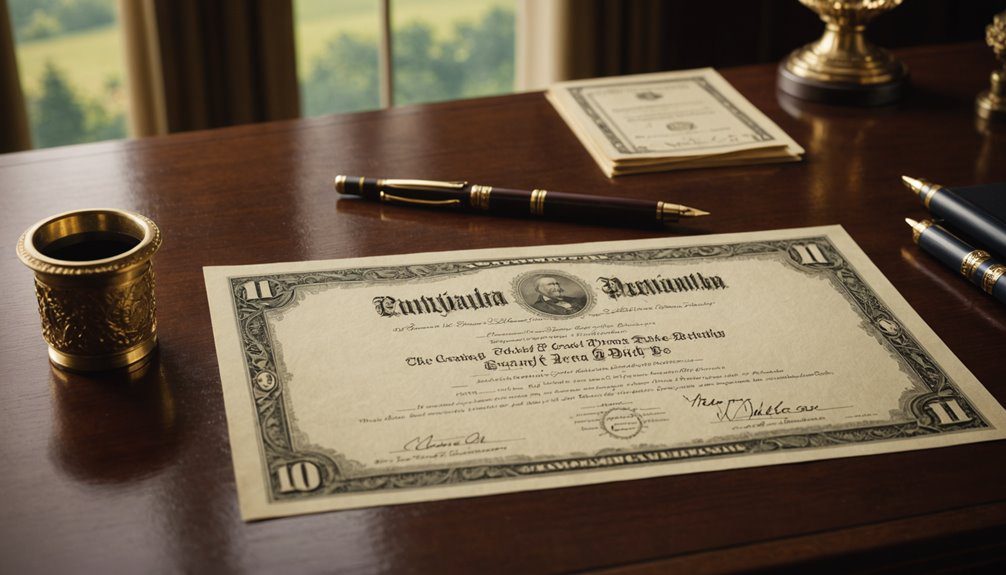When you consider becoming a public adjuster in Pennsylvania, understanding the Public Adjuster Bond is essential. This $10,000 bond isn't just a formality; it's designed to protect your clients and bolster your professional reputation. You'll need to complete a pre-licensing course and pass an exam before obtaining it, but the implications of this bond stretch far beyond initial compliance. What happens if you violate the bond's terms, and how could that impact your career? There are several important aspects to consider.
What Is a Public Adjuster Bond?

A public adjuster bond serves as a crucial safeguard for both clients and the adjusters themselves. This bond is essentially a contract that guarantees a public adjuster will operate within the law and adhere to ethical practices while representing clients in insurance claims.
When you hire a public adjuster, you expect them to act in your best interests, and this bond ensures they're held accountable.
In Pennsylvania, obtaining a public adjuster bond is a legal requirement for those working in this field. It typically requires the adjuster to secure a specific amount, which varies based on state regulations.
If an adjuster violates any laws or fails to fulfill their obligations, the bond provides a financial safety net for you, the client. This means you can seek compensation for any damages or losses incurred due to the adjuster's misconduct.
In short, a public adjuster bond not only protects you but also reinforces the integrity of the adjusting profession. By ensuring that adjusters are certified and bonded, the state promotes a higher standard of service and accountability in the insurance industry.
Importance of the Bond
Understanding the importance of the public adjuster bond can significantly impact your experience in handling insurance claims. This bond serves as a financial safety net, ensuring that you're protected against potential misconduct or negligence by public adjusters.
When you hire a public adjuster, you're entrusting them with your financial future, and the bond acts as a form of security for you. Moreover, the bond demonstrates the adjuster's commitment to ethical practices and professionalism. It shows that they're willing to adhere to industry standards and regulations.
If an adjuster fails to meet these standards, the bond can provide you with a means of recourse, allowing you to recover any losses incurred due to their actions. Additionally, having a public adjuster who's bonded can boost your confidence in their services.
You'll know you're working with someone who's taken the necessary steps to protect both themselves and you. This assurance can lead to smoother negotiations and a more favorable outcome in your claims process. Furthermore, the bond serves to build trust with clients seeking reliable services, enhancing your overall experience in navigating insurance claims. In essence, the bond is more than just a requirement—it's a critical component of your overall experience in navigating insurance claims.
Legal Requirements in Pennsylvania

Navigating the legal requirements for public adjusters in Pennsylvania is crucial for both adjusters and policyholders.
First, you need to be aware that public adjusters must be licensed by the Pennsylvania Insurance Department. This involves meeting specific educational and experience criteria, including completing a pre-licensing course and passing a state examination.
Once you're licensed, you're required to maintain a surety bond, which acts as a financial safety net for your clients. The bond amount is set at $10,000, ensuring that you adhere to ethical practices in your profession.
Additionally, you must provide proof of this bond when applying for your license. Indiana Surety Bonds can serve as a reference for understanding the importance of such financial safeguards in the industry.
It's also important to stay updated on continuing education requirements. Pennsylvania mandates that public adjusters complete a certain number of continuing education credits every two years to renew their licenses.
How to Obtain the Bond
Obtaining a surety bond is a key step after securing your public adjuster license in Pennsylvania. First, you'll need to gather necessary information, including your business details, personal identification, and any relevant financial history. This information will help surety companies assess your risk profile.
Next, research different surety bond providers to find one that suits your needs. Look for companies with a good reputation and experience in issuing public adjuster bonds.
Once you've selected a provider, reach out to them for a quote. They'll typically require you to fill out an application detailing your background and business practices.
After submitting your application, the surety company will evaluate your information. This process may involve a credit check and reviewing your financial history.
If approved, they'll provide you with a bond agreement outlining the terms and conditions. Additionally, ensure you understand the importance of timely renewal to maintain compliance with regulations.
Cost of the Bond

The cost of a Pennsylvania public adjuster bond varies based on several factors, including your credit score, business experience, and the bond amount required by the state. Typically, you'll pay a percentage of the total bond amount as a premium, often ranging from 1% to 10%.
For example, if the required bond amount is $10,000, and your premium rate is 3%, you'd pay $300 for the bond.
If you have a strong credit score and solid business experience, you're more likely to secure a lower premium. On the other hand, if your credit isn't great or you're new to the industry, expect higher costs.
It's worth noting that some bonding companies might also consider factors like your industry reputation and any past claims, which can affect your overall rate. Additionally, premium rates are significantly influenced by personal credit history, making it essential to maintain a good credit score.
To get the best deal, shop around and compare quotes from different bonding companies. This approach ensures you find a competitive rate that meets your needs.
Bond Renewal Process
As your bond nears expiration, it's crucial to understand the renewal process to maintain your compliance and protect your business.
Start by checking your bond's expiration date. Typically, you'll want to begin the renewal process at least 30 days before the expiration to avoid any lapses.
Next, contact your bond provider. They'll guide you through the renewal steps, which usually include submitting a renewal application and paying any required fees.
Be prepared to provide updated information about your business, as insurers may reassess your risk based on your recent activities.
Once you've submitted your renewal application, the insurer will review it. If everything checks out, you'll receive your renewed bond.
Ensure that you keep a copy for your records and provide a copy to the relevant licensing authority if needed.
Don't forget to stay informed about any changes in regulations that may affect your bond requirements, as bond compliance is essential for your continued operation.
Maintaining an active bond not only ensures compliance but also builds trust with your clients.
Proactively managing your bond renewal process is key to your ongoing success as a public adjuster in Pennsylvania.
Common Bond Violations

Navigating the landscape of public adjuster bonds can be tricky, especially when it comes to common violations that can jeopardize your compliance. One major pitfall is failing to adhere to state regulations. If you don't keep up with the latest laws regarding public adjusting, you risk facing penalties that can affect your bond status.
Another frequent issue involves misrepresentation. If you provide false or misleading information during the bonding process, it can lead to serious consequences, including bond cancellation.
Additionally, neglecting to notify your bonding company of any changes in your business activities can also violate your bond terms.
Timely renewal is crucial, too; letting your bond lapse can result in immediate violations, which could mean losing your ability to operate legally.
Lastly, if you engage in unethical practices or fail to act in the best interests of your clients, you could face claims against your bond.
To protect yourself, stay informed, maintain transparency, and uphold ethical standards in your business dealings. By avoiding these common violations, you can ensure your public adjuster bond remains intact and your business thrives.
Benefits for Public Adjusters
Public adjusters enjoy several key benefits that enhance both their professional credibility and business opportunities.
First, holding a Pennsylvania public adjuster bond demonstrates your commitment to ethical practices, which can significantly boost client trust. When potential clients see that you're bonded, they know you're serious about your responsibilities and that you adhere to state regulations.
Additionally, the bond can help you stand out in a competitive market. Clients often prefer working with adjusters who are bonded, as it provides them with an added layer of financial protection. This could lead to more referrals and repeat business, ultimately increasing your earning potential.
Furthermore, being bonded can improve your relationships with insurance companies. They're more likely to view you as a professional who operates within the law and maintains high industry standards. This can facilitate smoother negotiations and potentially lead to quicker settlements for your clients.
Lastly, the bond can protect you from potential financial losses due to claims or lawsuits, offering peace of mind as you navigate the complexities of your work. Moreover, obtaining a public adjuster bond can provide financial security for your business, helping to ensure that you fulfill your obligations to clients and regulatory agencies.
Embracing these benefits can significantly elevate your career as a public adjuster.
Impact on Clients

The presence of a Pennsylvania public adjuster bond significantly impacts clients by providing them with reassurance and security throughout the claims process. When you hire a public adjuster with a valid bond, you know that they're held accountable for their actions. This accountability means they're more likely to act in your best interest, ensuring that you receive fair compensation for your claim.
Additionally, if any issues arise during the claims process, the bond acts as a financial safety net. Should a public adjuster fail to fulfill their obligations or act unethically, you can seek compensation through the bond. This added layer of protection empowers you to trust the professionals you're working with, knowing that there's a recourse if things go awry.
Moreover, having a bonded adjuster can expedite the claims process. With their expertise and commitment to ethical practices, you're more likely to see a swift resolution, allowing you to focus on rebuilding rather than worrying about your claim.
Resources for Public Adjusters
Finding reliable resources can greatly enhance a public adjuster's effectiveness in the field. One key resource is the National Association of Public Insurance Adjusters (NAPIA). They offer a wealth of information, including training, networking opportunities, and updates on industry standards.
Joining NAPIA can provide you with invaluable support and insights.
You should also consider state-specific resources, like the Pennsylvania Association of Public Insurance Adjusters (PAPIA). This organization caters specifically to your state's needs, offering local training, seminars, and advocacy for public adjusters.
Staying connected with local peers can help you navigate Pennsylvania's unique regulations and practices.
Online forums and social media groups can also be great for sharing experiences and getting tips from fellow adjusters. Websites like LinkedIn and Facebook have dedicated groups where you can ask questions, share knowledge, and find mentorship opportunities.
Conclusion
In summary, the Pennsylvania Public Adjuster Bond is essential for your practice, ensuring you comply with legal standards and build client trust. By obtaining this bond, you not only protect yourself against potential misconduct but also enhance your professional credibility. Remember, staying informed about its requirements and benefits can significantly impact your relationships with clients and insurance companies. Embrace this opportunity to strengthen your reputation and foster a successful career as a public adjuster in Pennsylvania.

